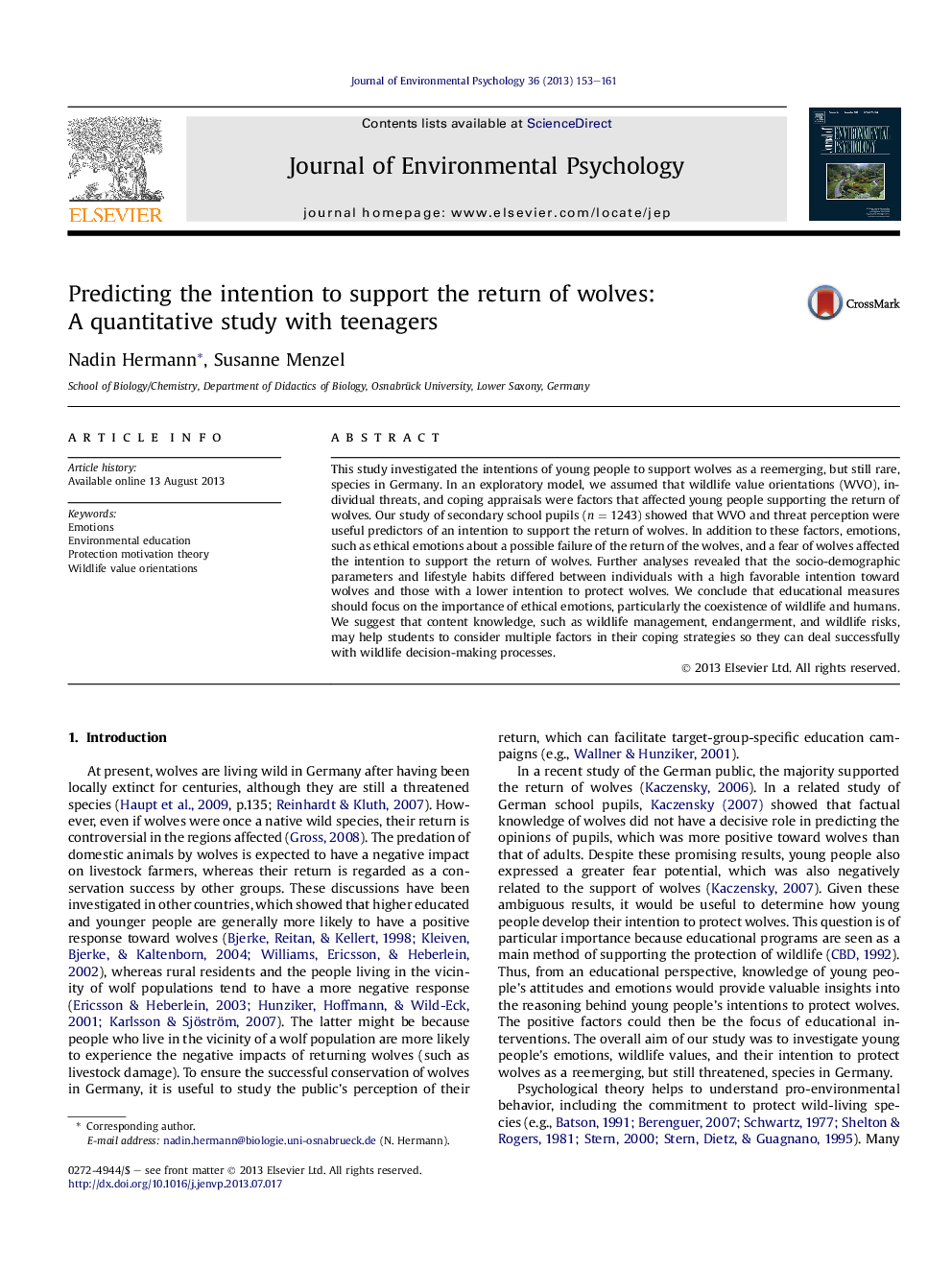| Article ID | Journal | Published Year | Pages | File Type |
|---|---|---|---|---|
| 7246492 | Journal of Environmental Psychology | 2013 | 9 Pages |
Abstract
This study investigated the intentions of young people to support wolves as a reemerging, but still rare, species in Germany. In an exploratory model, we assumed that wildlife value orientations (WVO), individual threats, and coping appraisals were factors that affected young people supporting the return of wolves. Our study of secondary school pupils (n = 1243) showed that WVO and threat perception were useful predictors of an intention to support the return of wolves. In addition to these factors, emotions, such as ethical emotions about a possible failure of the return of the wolves, and a fear of wolves affected the intention to support the return of wolves. Further analyses revealed that the socio-demographic parameters and lifestyle habits differed between individuals with a high favorable intention toward wolves and those with a lower intention to protect wolves. We conclude that educational measures should focus on the importance of ethical emotions, particularly the coexistence of wildlife and humans. We suggest that content knowledge, such as wildlife management, endangerment, and wildlife risks, may help students to consider multiple factors in their coping strategies so they can deal successfully with wildlife decision-making processes.
Related Topics
Social Sciences and Humanities
Psychology
Applied Psychology
Authors
Nadin Hermann, Susanne Menzel,
